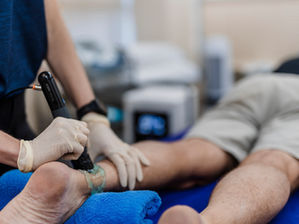YOUR Better Health Update | Learning from the Kids
- Nov 6, 2017
- 2 min read

Chronic diseases are becoming more common and are driven largely by unhealthy lifestyle behaviours including a poor diet, lack of exercise, excessive alcohol consumption and smoking.
Various interventions have been introduced to slow the growing numbers of people with problems like heart disease, diabetes and cancer, with varying degrees of success. No single approach works for everyone so it’s important to have a variety of evidence-based strategies available from which people can choose. School-based interventions are being used in some areas of health and have been successful in increasing children’s physical activity levels and improving their dietary choices. This has extended in some areas to include the children’s families. The children are provided with health education to pass on to their families to encourage lifestyle changes. Researchers assessed the effectiveness of this type of intervention in a group of school-aged children and their mothers.
The trial involved grade eight students from a number of schools in Sri Lanka and their mothers. Students were assigned to an intervention or control group for 12 months. The intervention delivered tailored education to the children in special classes. They were taught about chronic disease risk factors and were encouraged to come up with ways to address them. They identified risk factors relevant to their families, were encouraged to discuss these with their families and document changes in their mothers’ behaviour over the course of the study. They were also trained to provide feedback to their families addressing their progress over the year. The control group did not receive a program. The outcomes measured at the end of the study period included mothers’ weight, body mass index (BMI), self-reported physical activity levels, diet and food purchased for the household.
At the end of the 12 months, mothers in the intervention group showed lower weight and BMI, increased physical activity levels and a decrease in household purchasing of unhealthy foods such as biscuits and ice cream compared to the mothers of the controls.
These results suggest that an intervention delivered to school-aged children can lead to improvements for them and their families. Educating children about healthy behaviours is also important early in life to encourage the continuation of these behaviours into adulthood. With more evidence, this is a potentially effective program that is scalable to implement in primary schools and high schools to encourage better health for the whole family and hopefully lower the risk of some behaviour-driven chronic diseases.




















































